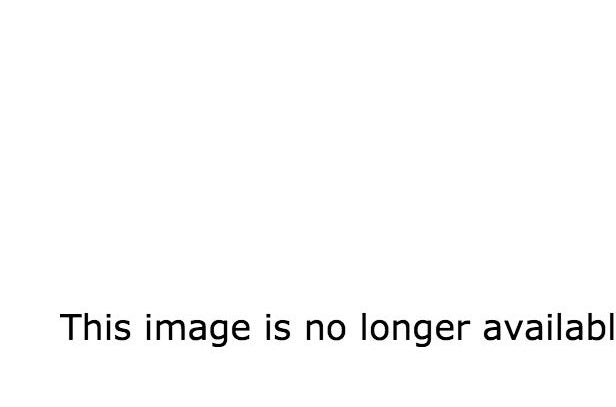
The Roots drummer, DJ, producer, and The Tonight Show bandleader Questlove (Ahmir Thompson) has been an avid music mixer and tastemaker since the late '80s. His latest venture is the Vh1 television show Soundclash, in which he brings together three different artists to perform on their own terms, and then has them collaborate on a single song. The show's genre-bending premise, coupled with Questlove's keenly observed column on "How Hip Hop Failed America" for New York magazine earlier this year (not to mention his autobiographical book from last summer Mo Meta Blues), are evidence that the tireless DJ's mind is even more restless than his hands are. We asked him about the idea behind Soundclash and what happens when music genres bleed into one another.
Questlove: If I were born in 2001 or 2011, what would a 5-year-old me want to see now? I wanted to develop [Soundclash] kind of like The Midnight Special where it's three different acts, and it wasn't often when they did this, but occasionally they would have a different twist or a challenge.
There was one episode in which The Commodores hosted and they were the band for Franki Valli and Nicolette Larson, or something like that. They all played "Grease" and I thought that was so cool, them all doing a funk cover of "Grease." There was an episode where Sly & The Family Stone and Tom Jones did "Everyday People." The collaborations are the things I remember. That's what I want to do.
The future and options [for music] are limitless. There's a term my circle kind of came up with. It's called shuffle culture. Which is pretty much the idea of the way music is digested now. You now have the power to carry your entire record collection inside of a small mp3 player. All you have to do is press a button and go from Aaliyah to ZZ Top. Actually, with all my talk about how long play records are the thing and people don't absorb music the way that they should and ADD, I myself am always pressing skip, skip, skip — "Oh I like that song" — skip skip skip — "What's that song." It's fun to do that. Several cultures have always been there in the culture.
[Shuffle culture] wasn't marketed as such back then, but all the shows that I grew up on, even though they weren't a fair and equal playground, had a mixture of different acts on different shows. There was a time I watched Live Aid and Run DMC and Madonna, "dance acts" were next to "prestige acts" like Led Zeppelin and Genesis. For the show it's about giving it balance. There are 13-year-old Latin kids who I want to see this particular artist or white kids who need to see this particular artist.


I know the idea of genres and segregating has probably been thrown in the trash. But at the end of the day you still need to place a particular type of music. It's not like I'm going to say, "Hey you know this type of music they make with 808 drum machines and all this synth type of stuff?" No, I'm going to say "trap music." It's just succinct and gets to the point.
What I really want to go super deep into… Oh God am I going to say the word "blurred lines" in a non-ironic way? [laughs] But I do want to get into blurring the lines. It's not that big of a deal. I want to see particular artists do different covers of songs or stripped-down arrangements of their stuff. Some people we pitched ideas to were like, "Uh, we'll get back to you on that one." Well obviously they don't want to do a polka cover of "Clocks" or "Parachutes" or something.
Does something get lost as a genre changes? I think that's up for debate. A big argument right now is what's Iggy Azalea's role in hip-hop. Obviously people will instantly chime in saying, "Culture vulture! Culture vulture!" Seeing as how I was here for the first wave, at least the first 25 years of hip-hop, it's sort of like when people went to these obscure places to do these shows, you knew it was going to have an effect on them. In a way that I was an 11-year-old sitting in the park watching DJs play, how could that not have an effect on you if you're a 12-year-old girl from Australia and you're at your first Naughty By Nature concert? Or your older sister takes you to see Nas for the first time? Of course that's going to! It might change your life. If it's a life change to the point where that's your calling, the energy needs to be rechanneled. Instead of fighting over a title and who it belongs to, we really need to talk about balance. That's the problem. I don't want to punish Iggy Azalea for an issue that she really has nothing to do with. That's the dangerous area.
Genres have already been messed with. 1920s Delta blues is now what we call classic rock and roll. Delta blues filtered through the ears of English teenagers, which is some of the great rock music from The Stones or Zeppelin. Gospel music of the 1910s filtered through secularism became soul music, then soul music and rock music became filtered and then it was hip-hop. Now hip-hop, at least the hip-hop that was near and dear to me, has been recontextualized into different types of genres. There's bounce, there's trap, there's EDM. Hearing Skrillex now or Deadmau5, twenty years ago that was The Bomb Squad to Public Enemy; the same annoying sounds, it sounds like your worst nightmare, and it's still effective. At the end of the day it's like pretty much every genre has been messed with. We live in an age of irony now. The thing to do now is to play what you're not supposed to.


I caught myself doing something in San Francisco about three weeks ago. I did it just to be funny, but it started to work and then I was like, Oh shit, I might be on to something. I was spinning Outkast's "Bombs Over Baghdad" which is a song that's like 160, 155 BPM, which isn't fast enough to be '80s pop. There's songs like "Mickey" or "Whip It" that are super fast. The only stuff that I had in the 155 BPM was gospel music. And I played it and I was like, Wow. Hipster teenagers, you can trick them into dancing to anything. If I were to do that twenty years ago the tomatoes wouldn't have been hurled fast enough. That's not to say well this generation has no taste or they're not discerning or they don't care, I just don't think it phases them. There's no such thing as "you're not allowed to do that." It just happens natural. Now I'm going through all my gospel records to see if I can do a half decent set based on praise music because it's actually spiritual, it has the same effect as "Bombs Over Baghdad." Even as a DJ I'm still trying to find ways to challenge people.
There was a period where everything I was associated with was called neo-soul, and instantly when it got that title everybody in my circle had a quip or one-liner about how they weren't neo-soul. But me knowing them better, me knowing them personally, I also saw that as their way of snidely saying "Don't group me together" but I was like, "Eh, you guys are kind of the same." Let's be honest here. It's like Entourage every time Billy Walsh calls Eric a Suit. I feel like part of me is a Suit, but part of me is an actual, naive artist who doesn't think about those things. If one day there comes a time where we don't need anymore titles, I welcome it, but not at the expense of negating someone. It's easy to negate someone in the music industry. There's ageism, there's a point where someone is "too old" to do that sort of thing, that goes on a lot in hip-hop. There's especially sexism, a lot of women still fighting for their voices to be heard and for a level ballfield. There's a cultural divide where certain cultures think this is their only way of expressing themselves and a particular side gets to express it but not this side.
I would honestly say people are more conservative now than ever. There's an abundance of music. There's more music now than ever. More albums, more songs released. People are getting into a dangerous practice of sticking with their own tribe and I see more of that happening these days. So [Soundclash] is a result and a direct counter-reaction to that complacency. You have to trick people into learning stuff. As a DJ, that's what I've learned the most.
